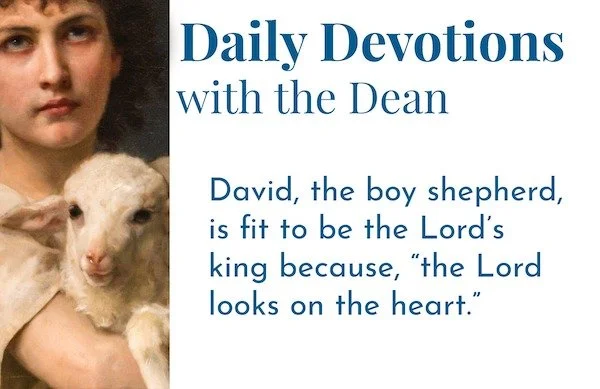Monday • 5/27/2024 •
We’re taking a detour from the Daily Office readings for a few days. Instead, we’ll be thinking through various facets of worship and how our Lord provides meaningful communion with him through our formal corporate worship as well as in individual worship in our daily devotions. The thoughts offered here are excerpts from articles I wrote for Worship Leader magazine a few years ago.
From Centerfield: Athanasius, the Psalms, and Making the Right Play
I once attended a college baseball game in which the crowd cheered a spectacularly dumb throw from deep centerfield to home plate. The throw itself was quite a feat (though it had no chance of catching the runner). But it was dumb, because it gave the game away by allowing what would become the tying run to get to second base. What could have saved the game would have been a less impressive throw to second base, keeping that runner at first.
Four Ecumenical Councils took place between A.D. 325 and 451. They exemplified game-saving wisdom, of the sort the college centerfielder should have shown.
Those Councils made four statements in response to spectacularly dumb things that were being said about Christ. The Councils’ statements can be crisply put, and their implications are profound: first, Christ is fully divine, since only God can save. Second, Christ is fully human, since “only that which is assumed can be healed.” Third, Christ is one integral person, since a bi-polar Savior could not restore us to inner wholeness. Fourth, Christ’s divine nature does not eclipse his human nature, since he came to glorify our humanity and not diminish it.
A small often overlooked letter on the psalms by Athanasius, bishop of Alexandria and one of the inspirers of the Councils’ statements, sheds light on the origins of such spiritual and theological insight.
A friend named Marcellinus wrote to Athanasius looking for guidance on how to get to know the psalms better. In his response, Epistle to Marcellinus, Athanasius sounds the very themes the Councils will later apply to Christ.
Divinity
In the Incarnation, God has funneled his fullness to us through one Man; in the Psalter, God has concentrated for us the whole Bible in miniature. Each of the other books, says Athanasius, “is like a garden which grows one special kind of fruit; by contrast, the Psalter is a garden which, besides its special fruit, grows also some of those of all the rest.” In Genesis, for example, we read about the creation; in Psalms 19 & 24 we celebrate creation in song. Exodus, Numbers, and Deuteronomy recount the exodus from Egypt; in Psalms 87, 105, 106, and 114 we “fitly sing it.” Impressively, Athanasius shows how virtually every theme of the Bible shows up somewhere in the Psalter. Through the psalms, God’s great cosmic story becomes our personal story as well.
Humanity
The psalms aren’t just a way into God’s story; they provide a mirror for our soul. In them, “you learn about yourself.” They describe us better than we can describe ourselves. Moreover, while other portions of Scripture tell us what to do, the Psalter shows us how. Elsewhere, for instance, Scripture tells us to repent, but the psalms “show you how to set about repenting and with what words your repentance may be expressed.” Elsewhere, Scripture tells us to bear up under persecution, but the psalms describe “how afflictions should be borne, and what the afflicted ought to say, both at the time and when his troubles cease.”
Integrity
Most of us can identify with the horrible split the apostle Paul experienced between his inner self and his outer self: “I do not do the good I want, but the evil I do not want is what I do. … Wretched man that I am, who will deliver me from this body of death?” (Romans 7:19,24). Paul’s answer, of course, is Christ. The Councils affirmed, therefore, that Christ himself was unified, rather than split, in his Person. Otherwise, there’d be no hope for the splits within us. In the same vein, Athanasius encourages – no, urges – us not merely to read the psalms, but to sing them. When we sing, our inner being and our outer being work together: our “usual disharmony of mind and corresponding bodily confusion is resolved.” The result is that when we sing psalms, Christ heals our inner brokenness.
Dignity
Do you get the sense that some believers think that when Christ comes into their lives he replaces their souls? Do you know spiritual zombies you can’t even have a conversation with because all you get is Bible verses or spiritual clichés?
Athanasius must have known people like that too. One of the most impressive things he does in his epistle is comment on almost every psalm, and invite Marcellinus to look – really look – at whatever life-situation he might find himself in and ask how that psalm could fortify him: “Has some Goliath risen up against the people and yourself? Fear not, but trust in God, as David did, and sing his words in Psalm 144.”
The message: God wishes to meet you in your life, not give you some sort of escape button to get you out of your life. The psalms – like Christ himself – are here to enhance, not diminish, what it is to be fully human.
Through practice and scrimmage and games and, well, simply breathing baseball, a centerfielder should know where to throw, without even having to think about it. Through worship and prayer and study and, well, simple immersion in the faith of the psalms, may we absorb their “game-saving wisdom.”
Be blessed this day,
Reggie Kidd+

















